Chemistry

Educators and Parents, Sign Up for The Cheat Sheet
Weekly updates to help you use Science News Explores in the learning environment
Thank you for signing up!
There was a problem signing you up.
-
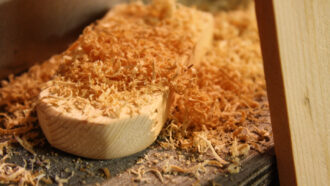 Materials Science
Materials ScienceA disinfectant made from sawdust knocks out deadly microbes
It’s made by pressure-cooking sawdust and water, is cheap and easy to make — and could lead to greener cleaning products than chemicals used today.
-
 Life
LifeScientists Say: Cellulose
Cellulose is an abundant natural polymer found in plants and algae. It’s used to make everything from paper to clothing.
-
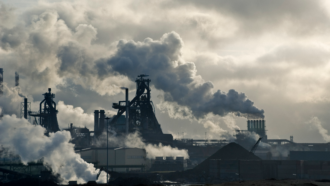 Chemistry
ChemistryNew process can transform urban CO2 pollution into a resource
Researchers have developed a liquid metal that breaks down carbon dioxide in the air, converting it from a climate threat into a valuable raw material.
-
 Environment
EnvironmentClothes dryers may be a major source of airborne microplastics
Scientists thought washing machines were a leading contributor of microplastics. Now it appears dryers may be an even bigger problem.
-
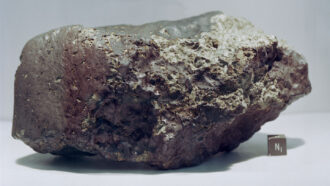 Planets
PlanetsNo, organic molecules alone don’t point to life on Mars
These carbon-based molecules, found in a meteorite, may reflect merely a mixing of water and minerals on the Red Planet over billions of years.
By Nikk Ogasa -
 Chemistry
ChemistryExplainer: What are fats?
A fat molecule's three long chains of carbon and hydrogen atoms repel water, stash energy and keep living things warm — even in the bitter cold.
-
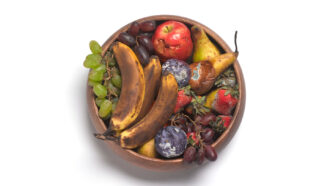 Ecosystems
EcosystemsScientists Say: Decay
This word can refer to rotting flesh or the transformation of radioactive atoms.
-
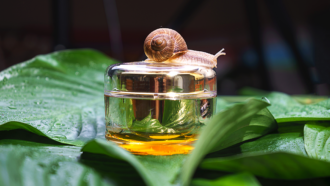 Chemistry
ChemistrySnail slime + gold could boost the power of sunscreens and more
These two strange ingredients could make skin-care products that are better for both our skin and the environment.
-
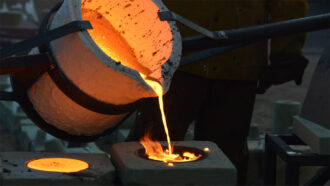 Chemistry
ChemistryExplainer: What is a metal?
Metals can bend and pull without snapping, and conduct electricity. The reason: Their atoms tend to lose electrons to neighboring atoms.
-
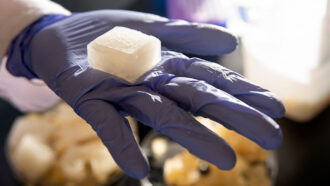 Chemistry
ChemistryCould reusable ‘jelly ice’ cubes replace regular ice?
These hydrogel “jelly ice cubes” are made mostly of gelatin and water. They won’t melt, even when thawed, and may provide new food cooling options.
-
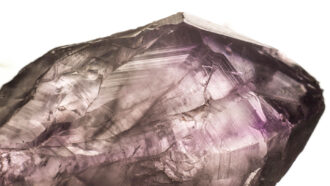 Chemistry
ChemistryScientists Say: Silicon
The chemical element silicon is used to make everything from bricks to cookware to electronics.
-
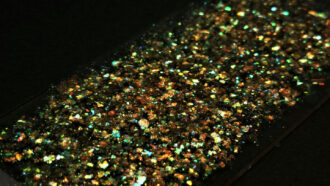 Materials Science
Materials ScienceThis glitter gets its color from plants, not a synthetic plastic
In the new material, tiny arrangements of cellulose reflect light in specific ways to create vibrant hues in an environmentally friendly glitter.